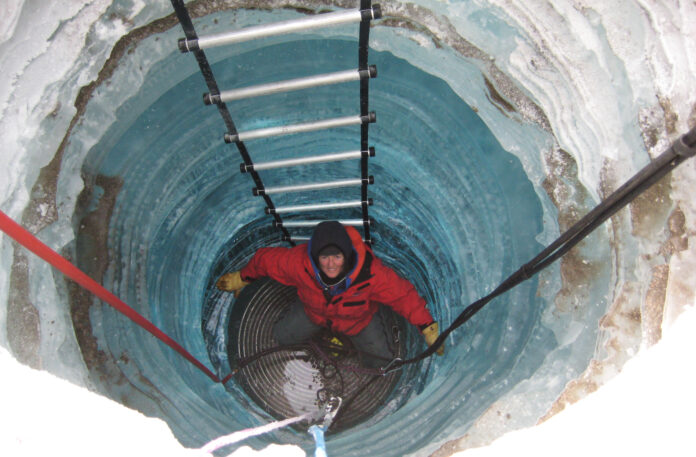UC Davis scientific research supported by the National Science Foundation (NSF) and National Institutes of Health (NIH) was severely impacted within the first few days of the recent government shutdown.
Due to the lapse in funding, several faculty members, graduate students and researchers have witnessed the debilitating effect on their research.
About a week before geology professor Dawn Sumner was supposed to embark on her three month trip to Antarctica with the United States Atlantic Program (USAP), it was abruptly cancelled.
Along with the thousands of researchers involved with USAP, which is funded by the NSF, Sumner is still waiting to hear whether the research in Antarctica will persevere.
“I still don’t know whether or not I’ll be able to go [to Antarctica]. It is very uncertain which is very unnerving,” Sumner said.
In order to coordinate fieldwork in Antarctica, the NSF works with Lockheed Martin, an American advanced technology company, for logistical and technical support.
When the shutdown initially occurred, Lockheed Martin had enough money allocated toward USAP for about a week.
As the pool of funding gradually depleted, all Antarctic research stations were transitioned into “caretaker status,” where the majority of stationed staff were required to go back home.
Now that the government has returned from its 16-day shutdown, USAP is currently in the process of recovering all delayed research.
If USAP is unable to reschedule the trip, Professor Sumner is among the lucky ones who will still be able to do her research with the help of the New Zealand Antarctic Program.
While the possibility of researching in Antarctica looks more promising for Professor Sumner, there are still challenging time constraints that must be considered.
Since Professor Sumner was supposed to depart on Oct. 17 and conduct her fieldwork in early November, all of her research has been pushed back into later months.
“We need that time in November, [because] typically it’s too warm by December,” Sumner said. “If you miss one year of monitoring, you can never get that back. This can significantly damage the quality of results.”
Tyler Mackey, a geology Ph.D. student researcher involved in Professor Sumner’s project, addressed the same concern.
“If we aren’t able to get there in time during the year, we won’t be able to do our work this year at all,” Mackey said.
Ultimately, the loss of this fieldwork in Antarctica could inhibit Mackey from specifically addressing elements of his work.
“It will affect what my Ph.D. is on and will change the different parts of the research,” Mackey said.
Mackey, however, stated that he was fortunate. If he had not done enough research previously, he may have been in danger of not getting his Ph.D..
The potential decrease in research that this shutdown has caused may also impinge upon scientific efforts and achievements globally.
“The science that the U.S. is doing is not in a vacuum,” Mackey said. “We collaborate extensively with other countries.”
According to Mackey, the lack of research that they will be able to share is an unfortunate byproduct of the shutdown and budget cuts.
Research funding in the U.S. has been cut back dramatically for a while now. Under the sequestration order that was signed on March 1, 2013 by the federal government, the NSF’s budget was cut by $356 million.
While all research funded by the NSF will receive the allocated grants for this year, the sequestration will limit the future scope of the program, and the sharing of research between nations may be impacted.
In turn, the multitude of scientific projects on campus and the availability of grants for graduate students will be cut down.
Johnathon Anderson, a genetics Ph.D. student who works in an NIH funded lab at the Institute for Regenerative Cures, shared his concerns regarding the future difficulties that students will face.
“I fear that some of the students may have been discouraged from applying for the NSF Fellowship since they could not access the NSF FastLane website and the submission deadline is coming fast upon them,” Anderson said in an email interview.
Like the potential graduate students applying for NSF scholarships, Anderson has experienced similar obstacles when writing grants for his own laboratory.
“The recent government shutdown froze my lab’s Transformative NIH (high risk, high reward) grant,” Anderson said. “This has caused my research to grind to a halt as I have not been able to order much needed supplies for my project.”
In addition to the challenges during the grant writing process, Anderson said he believes that scientific resources utilized for groundbreaking research are being jeopardized.
“The shutdown has also put the lives of thousands of valuable research mice at risk that are used in cancer, diabetes and Alzheimer’s research, and put shipments on hold for fruit flies which are an invaluable research model organism,” Anderson said.
Although all of these issues will be extremely challenging to solve in the upcoming year, Anderson believes that both the recognition of scientific innovations among the general population and the need for federal support will help to advance programs like the NSF and NIH.
“I think the scientific community as a whole could do a much better job of elucidating just how crucial government funding is to generating tangible products that our society benefits from, while concurrently sparking much needed wealth creation for our economy,” Anderson said.




